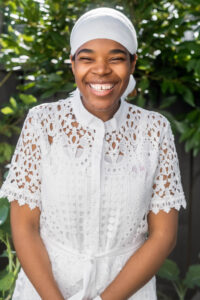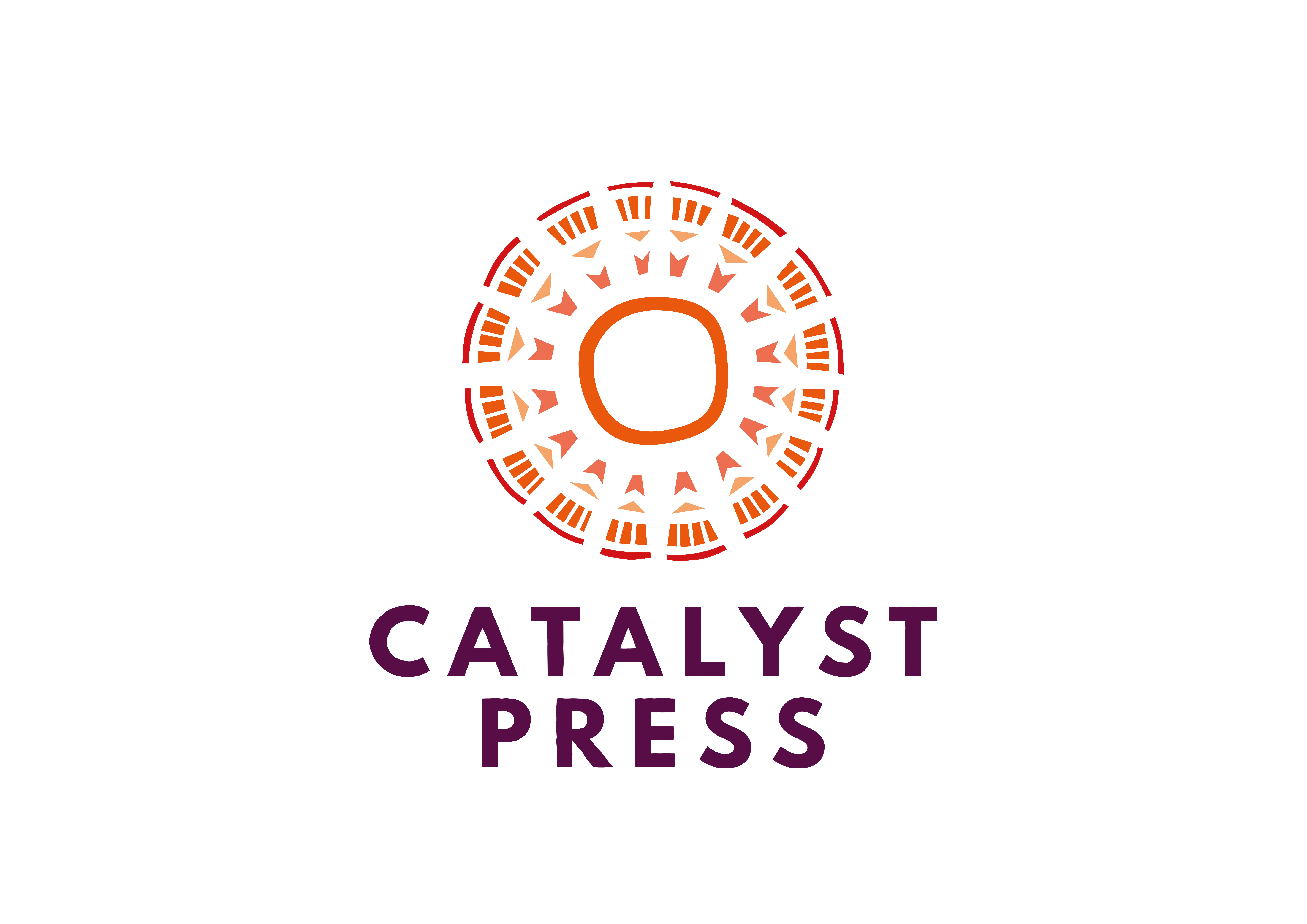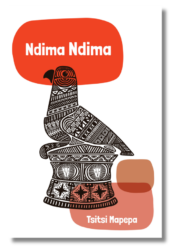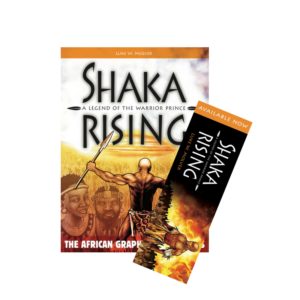Introducing our readers to new and emerging voices in the literary space is our favorite thing to do here at Catalyst Press. One voice in particular stands out to me this year: Tsitsi Mapepa, the debut author of Ndima Ndima, which releases on November 7th.
Born and raised in Zimbabwe, now living in New Zealand, Tsitsi received her Master’s in Creative Writing from the University of Auckland in 2020. Her work is honest, heart-wrenching, and illuminating—and we are so honored to share it with our readers. Booklist calls Ndima Ndima “[a] truly insightful debut from an exciting new Zimbabwean author with a talent for writing the human experience,” and we couldn’t agree more!
Recently, I had the opportunity to sit down with Tsitsi and chat a little bit about this incredible story.

SarahBelle Selig: Tsitsi. thank you so much for making time to speak with me! To start off, tell me about the process of writing Ndima Ndima.
Tsitsi Mapepa: I am a perfectionist, I want things organized, but when it comes to my writing, I am a pantser (I work by the seat of my pants). The stories in Ndima Ndima were never written in order. It helped me when I got stuck, unsure of what to write following the finished story. So I jumped to the most exciting stories I had in mind. I still do this, even when I’m writing a novel. I know some writers would find it strange and time consuming when it comes to structural development, but that’s just how I craft my stories.
SS: Have you always enjoyed writing?
TM: Yes, I started writing when I was young. When I was in high school I attempted writing a novel, which I never finished. And I also wrote a collection of poetry on loose papers and notebooks.
SS: You emigrated from Zimbabwe in 2007. What was been your expat experience? Did writing Ndima Ndima feel like going home?
TM: I moved to New Zealand because my husband was already here. So, for the two of us, it was a new beginning. For me, the most challenging thing was raising our children in the absence of our closed ones. In our culture, we strongly rely on other family members for extra support.
When it came to creating the landscape in Ndima Ndima, it was like scraping for the images of a home buried at the core of my heart. This part of the novel left me with a smiling soul, because I could see what I miss on the page.
SS: Nyeredzi and Zuva, your main characters, are both strongly connected with their ancestors. What’s your relationship like with your ancestors? How do you keep that relationship alive from afar?
TM: Both my parents made sure we knew who our ancestors were and their importance in our lives. Now, I may not have met my father’s parents, and my mother’s father, but I got to spent time with my grandmother when I was young. We used to visit her on holidays. To me, my grandmother represented all of my great mothers and fathers. I dearly miss her so much, and I always think of her when other people talk about their grandparents. To keep her presence in my life, her photos are neatly framed and placed on my shelves. I also pass on the wisdom she shared with me when I was young to my children.
When it came to creating the landscape in Ndima Ndima, it was like scraping for the images of a home buried at the core of my heart. This part of the novel left me with a smiling soul, because I could see what I miss on the page.
SS: Why did you choose to write about the Second Chimurenga war? What about that conflict felt important to explore for you?
TM: I never planned to write about the Second Chimurenga War. But because of the images I wanted to bring out through my characters, I ended up including this war in my project. It felt important to write this story from a woman’s point of view because we barely hear women’s side of war.
SS: So much about this book is about motherhood. Did your relationship with your own mother, or your children, inform Zuva and Nyeredzi’s relationship in any way?
TM: I cannot say yes or no, that my relationship with my mother informed Zuva and Nyeredzi’s relationship, but I’ll say, I wrote the relationship that I want to have with my children.
I never planned to write about the Second Chimurenga War. But because of the images I wanted to bring out through my characters, I ended up including this war in my project. It felt important to write this story from a woman’s point of view because we barely hear women’s side of war.
SS: Which of the characters in Ndima Ndima do you feel most connected to?
TM: I feel most connected to Zuva and her parents’ relationship. To have that kind of support, guidance, and love from both parents is pure treasure to a child.
SS: If you could recommend one book about Zimbabwe to American readers, besides Ndima Ndima, what would it be?
TM: This is difficult because the novel is written in Shona, but I fell in love with Tambaoga Mwanangu, by Giles Kuimba, when I was in high school. I’m pretty sure American readers are already familiar with some Zimbabwean writers like Tsitsi Dangarembga, Petina Gappah, NoViolet Bulawayo, Siphiwe Gloria Ndlovu [Editor’s note: Not to brag, but we also publish Siphiwe. Ok, well, we’re bragging a little], etc., but I wouldn’t hesitate recommending Collected Short Stories by Charles Mungoshi.
SS: Tell us about the name Ndima Ndima and where it comes from, and its significance in the book.
TM: Ndima Ndima is a rain dance I created specifically for my story titled, The Call of Ancestors, in the novel. I love creating my own words when writing, so the two words together don’t have a meaning in my first language (Shona). But in the novel, the Ndima Ndima dance becomes the core of many things. It reconnects my leading characters with their ancestors, resurrecting their forgotten beliefs and identity.
SS: What type of books do you enjoy reading? What’s next on your list to read?
TM: If it’s not poetry books on my bookshelf, then it would be novels, mostly fiction. I don’t mind if they were written in the 1900s or 2000s; I love reading any book that draws me in, despite its genre. I’ve always been avoiding reading memoirs because I know they’ll inspire me to write one, too. A year ago, I read I Am A Girl From Africa by Elizabeth Nyamayaro, My Father’s Island by Adam Dudding, and Becoming by Michelle Obama, and now I’m looking forward to read Ripiro Beach by Caroline Barron and Manifesto: On Never Giving Up by Bernardine Evaristo.
I never planned to write about the Second Chimurenga War. But because of the images I wanted to bring out through my characters, I ended up including this war in my project. It felt important to write this story from a woman’s point of view because we barely hear women’s side of war.
SS: If you could have dinner with one author, alive or dead, who would it be?
TM: I still have the opportunity to ask the ones who are still alive, but for those who’ve left us, it would have been Maya Angelou. If I may add three more, it would be Charles Mungoshi, Ama Ata Aidoo, and Chinua Achebe.
SS: What’s something else that you’d like the Catalyst readers to know about you?
TM: Most of the times I’m surrounded by my children who seek too much of my attention. Sometimes they forget I’m working. So for me to concentrate, I write with music. It puts me in that space where I can see only my characters and their world.
SS: Lastly, any new projects on the horizon for you?
TM: I have a couple of books I’ve drafted these past two years. At the moment I’m revising one of them.
We certainly look forward to seeing it! Tsitsi, thank you so much for making time to chat. For all of our readers, you can pre-order your copy of Ndima Ndima from Bookshop here.




